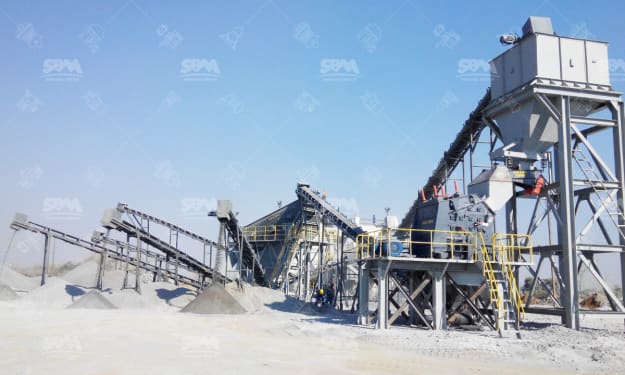The Impact of Fast Fashion on the Environment
Time to Rethink Our Wardrobes

Introduction
In today's fast-paced world, the fashion industry has undergone a significant transformation with the rise of fast fashion. With its affordable prices and ever-changing trends, fast fashion has captured the attention of consumers worldwide. However, behind the glitz and glamour lies a darker truth – the detrimental impact it has on the environment. In this article, we will delve into the environmental consequences of fast fashion, explore its widespread effects, and discuss why it is crucial to rethink our wardrobes for a more sustainable future. Join us on this eye-opening journey as we uncover the true cost of fast fashion.
Fast Fashion: A Rapidly Growing Industry
Fast fashion refers to the production of low-cost, trendy clothing designed to be quickly produced and consumed. With the advent of fast fashion giants like Zara, H&M, and Forever 21, the industry has seen a rapid increase in production and consumption. Fast fashion brands churn out new collections at an astonishing pace, tempting consumers to constantly update their wardrobes to stay in line with the latest trends.
Example: In 2019, the global fashion industry produced an estimated 100 billion garments, and this number continues to rise each year. The sheer scale of production and consumption in the fast fashion industry has significant environmental repercussions.
Excessive Resource Consumption and Pollution
The production of fast fashion relies heavily on the extraction of finite resources, such as water, energy, and raw materials. The cultivation of cotton, one of the most commonly used fibers, requires vast amounts of water and pesticides. Furthermore, synthetic fibers like polyester, widely used in fast fashion, are derived from fossil fuels and contribute to greenhouse gas emissions during production.
Example: It takes approximately 2,700 liters of water to produce a single cotton t-shirt, equivalent to the amount of water an individual drinks in 2.5 years. The excessive water usage and chemical pollution from textile dyeing and finishing processes have devastating consequences on local ecosystems and communities.
Waste and Landfill Overflow
The fast fashion industry operates on a "take-make-dispose" model, encouraging consumers to constantly discard old clothes and purchase new ones. This culture of disposable fashion leads to a staggering amount of textile waste, most of which ends up in landfills or incinerators.
Example: In the United States alone, over 11 million tons of textile waste is generated annually. These clothes, often made from synthetic fibers, take hundreds of years to decompose, releasing harmful substances and contributing to greenhouse gas emissions in the process.
Exploitation of Workers and Human Rights Issues
The fast fashion industry is notorious for its exploitative labor practices. To keep costs low and production fast, many brands outsource manufacturing to low-wage countries, where workers often endure poor working conditions, long hours, and low wages.
Example: The 2013 Rana Plaza factory collapse in Bangladesh, which claimed the lives of over 1,100 garment workers, served as a tragic wake-up call to the human rights abuses prevalent in the fast fashion supply chain. The incident shed light on the urgent need for transparency and ethical sourcing in the industry.
Embracing Slow Fashion: A Sustainable Alternative
As consumers, we hold the power to drive change. Embracing slow fashion, a more sustainable alternative, can have a significant positive impact on the environment. Slow fashion promotes conscious consumption, focusing on quality over quantity and prioritizing ethical and sustainable production practices.
Example: Brands like Patagonia and Eileen Fisher have embraced slow fashion principles, offering durable, timeless pieces made from eco-friendly materials. By investing in higher-quality garments and adopting a more mindful approach to shopping, we can reduce waste and support brands that prioritize sustainability.
Sustainable Choices for a Better Future
Making sustainable choices when it comes to fashion doesn't have to be overwhelming. Here are some actionable steps we can take to reduce our environmental impact:
a. Choose quality over quantity: Invest in well-made, durable clothing that will stand the test of time.
b. Thrift and swap: Explore second-hand and vintage stores or participate in clothing swaps to give pre-loved garments a new life.
c. Support sustainable brands: Seek out brands that prioritize sustainable materials, ethical production, and transparency.
d. Practice mindful consumption: Before making a purchase, consider if it aligns with your personal style, needs, and values.
e. Extend the lifespan of your clothes: Care for your garments properly by following washing instructions, repairing when needed, and donating or recycling when no longer wanted.
Conclusion
The fast fashion industry's impact on the environment is undeniable, from excessive resource consumption and pollution to waste generation and exploitation of workers. However, by rethinking our wardrobes and embracing a more sustainable approach to fashion, we can pave the way for a better future. Let us remember that our choices as consumers have the power to shape the industry and create positive change. Together, we can demand transparency, support ethical brands, and advocate for a fashion industry that values both style and sustainability. It's time to step away from the allure of fast fashion and towards a more conscious, responsible fashion future.





Comments
There are no comments for this story
Be the first to respond and start the conversation.